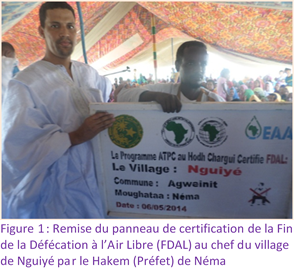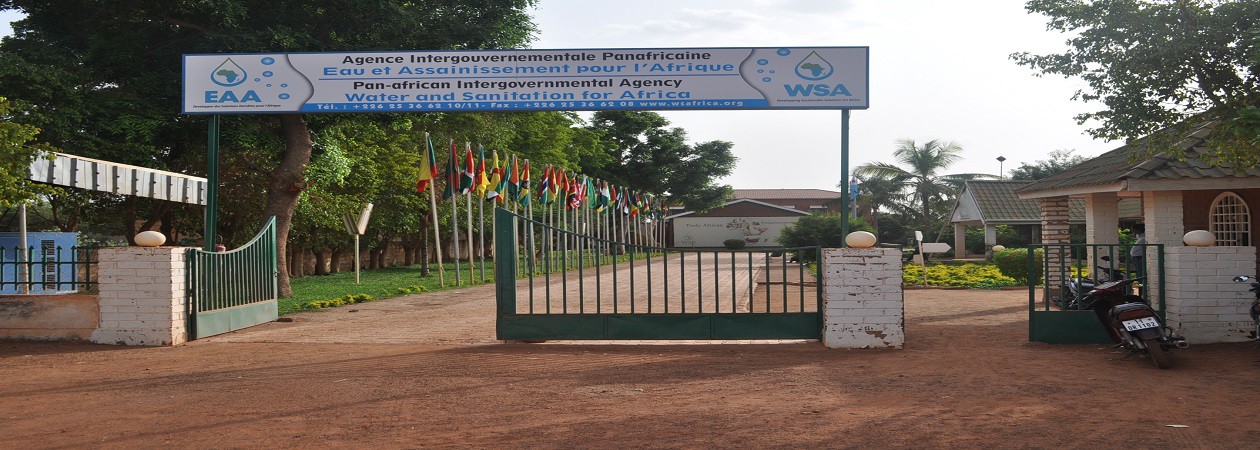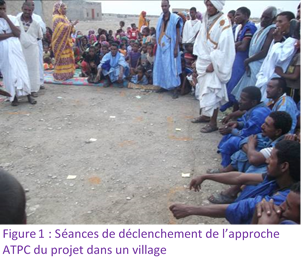Put an end to open air defecation, the task the Pan African Intergovernmental Agency Water and Sanitation for Africa (WSA) has undertaken in hundreds of communities in Mauritania. As such, WSA has unwounded since 2013 the "Implementation of the household sanitation component through the CLTS approach in 100 localities of the Hodh Chargui region" Project.
The said project enabled communities to stop open air defecation practices and to streamline the management of human waste thereby improve their health conditions. The project led from October 2013 to May 2015 aimed at contributing to the improvement of hygiene and sanitation conditions of the people in rural areas, as underpinned in the intervention principles of the Mauritania National Sanitation Policy. Specific objectives set for this project are, among others: - bring 100 localities in the Hodh Chargui region to abandon bad hygiene and sanitation practices, including open air defecation -design, develop and promote appropriate sanitation facilities for the disposal of wastewater and excreta -the 100 target communities adopt handwashing practices. The project also aimed the training of craftsmen-masons on wastewater facilities construction techniques; the promotion of subsidy mechanisms in support of the construction of improved latrines in poor households; and organizing two regional workshops to popularize the National Sanitation Policy and strategy Paper in target areas.
Figure 1 : CTLS trigerring session in one village
Altogether 1,000 households benefited from the project with remarkable results. Indeed, all 100 localities of Hodh Chargui have been declared ODF (Open Defecation Free) and appropriate sanitation facilities for the disposal of wastewater and excreta and handwashing have been promoted. In addition, two hundred (200) craftsmen-masons have been trained in sanitation facilities construction techniques as well as several CLTS facilitators. Also, a subsidy mechanism for the construction of improved latrines has been introduced for the benefit of poor households, which helped register up to 1,950 self-built latrines and 3,860 improved latrines. The project has also helped promote the Mauritania National Sanitation Policy and Strategy through the organization of two regional workshops.

Figure 2 : The Hakem (prefect) of Nema handing the ODF (Open Defecation Free) certification panel to the Nguiyé village leader
Funded by the African Development Bank (AfDB) and implemented by WSA-Mauritania with the assistance of several technical, regional and local partners; the project has greatly improved the living conditions of the people and has definitely increased awareness on risks incurred with open air defecation practices, which in turn encouraged communities to focus on latrines, hygiene and sanitation.




